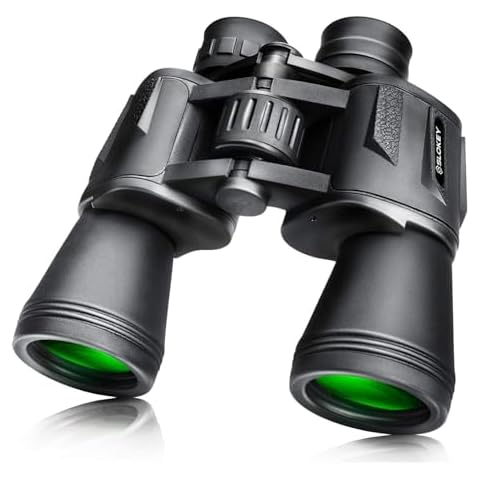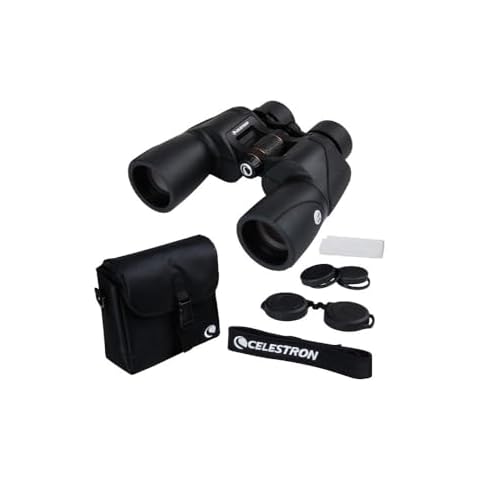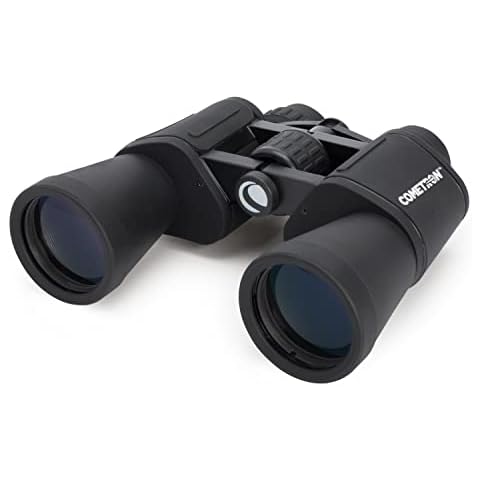Best Binoculars for Astronomy of 2026
* We independently evaluate all recommended products and services. If you click on links we provide, we may receive compensation.
Binoculars for Astronomy are an essential tool for stargazing enthusiasts who want to explore the night sky in more detail. These binoculars are designed to provide a clear and bright image of celestial objects, such as stars, planets, and galaxies, with their large objective lenses and high magnification power. They are lightweight and portable, making them easy to carry to a dark sky site, and they offer a wider field of view than telescopes, making them ideal for observing star clusters and other large objects. If you are looking to take your stargazing to the next level, Binoculars for Astronomy are a great investment.
At a Glance: Our Top Picks
Top 5 Binoculars for Astronomy
Slokey 10x50 High Power Binoculars
The Slokey 10x50 Binoculars are designed for a range of outdoor activities, making them ideal for nature observation, hiking, and astronomy. With a stable 10x zoom, you can enjoy clear, detailed views from a distance. Their compact design and non-slipping grip ensure comfort and durability, even in challenging weather conditions like rain or fog. The multi-coated optics and Bak-4 lenses provide bright images, even in low light, enhancing your experience whether you are birdwatching or stargazing.
Praktica Falcon 10x50mm Binoculars for Nature
The Praktica Falcon Binoculars offer a powerful 10x magnification, allowing you to zoom in on your subjects with impressive clarity. With a large 50mm objective lens, you can enjoy detailed views, whether you're birdwatching or stargazing. The 7° angular field of view enables you to focus on your target at a distance of 1000 metres, providing a wide perspective. Additionally, these binoculars are tripod compatible, making them perfect for extended outdoor viewing sessions without strain.
Celestron 72033 SkyMaster Pro ED 7x50 Binoculars
The Celestron SkyMaster Pro ED binoculars offer exceptional viewing experiences with their Extra-Low Dispersion (ED) glass, which significantly reduces colour fringing, resulting in sharp images and accurate colours. With 7x magnification and large 50mm objective lenses, you can effortlessly observe wide-field astronomical targets like the Pleiades and the Milky Way. The XLT coatings enhance light transmission, ensuring brighter images for a more enjoyable stargazing experience. Additionally, these binoculars come with threaded eyepiece filters to further enhance your viewing possibilities.
SCOKC 30X80 Tenjin Astro Binoculars
The SCOKC Tenjin Binoculars offer powerful 30x magnification, making them perfect for stargazing and observing distant objects. With 80mm objective lenses, you can enjoy bright and sharp views even in dim conditions, ensuring a satisfying experience during dawn or dusk. The integrated tripod adapter allows for hands-free operation, providing convenience during extended viewing sessions. Additionally, the durable and water-resistant design means you can confidently use them in various weather conditions, protecting your investment for years to come.
Celestron Cometron 7x50 Astronomy Binoculars
The Celestron Cometron Binoculars are perfect for beginners eager to explore the night sky. With 7x magnification, you can easily pan across the Milky Way and discover constellations, making your stargazing experience more enjoyable. The 50mm objective lenses, equipped with multi-coated optics, ensure bright and detailed views, enhancing contrast and resolution. Their durable, water-resistant design means you can take them outdoors without worry, providing a secure grip while you enjoy your astronomical adventures.
Frequently Asked Questions (FAQs)
1. What kind of binoculars do I need to see planets?
As a rule of thumb, get stargazing binoculars with an aperture of 35 mm to 60 mm aperture and a magnification of 7x to 10x. A pair of 7×35's is about the minimum acceptable for astronomical observing; 7×50's are better… this will give you the same magnification but a wider field of view.
2. Can binoculars be used for astronomy?
While binoculars are excellent for stargazing, they're not ideal for all-sky celestial events. That includes meteor showers, for which you need as wide-eyed a view of the night sky as possible. The same goes for the aurora borealis — the northern lights — which always look best when viewed with the naked eye.
3. Are binoculars any good for stargazing?
Binoculars are often the best piece of equipment for astronomy beginners or those who enjoy a spot of stargazing, offering great views of the Moon and stars among other celestial objects.
During our binocular for astronomy research, we found 243 binocular for astronomy products and shortlisted 5 quality products. We collected and analyzed 94,316 customer reviews through our big data system to write the binoculars for astronomy list. We found that most customers choose binoculars for astronomy with an average price of £47.10.
The binoculars for astronomy are available for purchase. We have researched hundreds of brands and picked the top brands of binoculars for astronomy, including Slokey Discover The World, Praktica, Celestron, SCOKC. The seller of top 1 product has received honest feedback from 13 consumers with an average rating of 4.9.
Kenneth Collin graduated from Imperial College, London, at 22. He is a UX/UI designer, a web developer, and a writer, amongst others. At age 14, Kenneth programmed his first app. Kenneth's app served as a remote control for censored devices. "When I was 8, I would pick up scraps from electronics and try to rebuild or at least fix them," Kenneth said in one of his recent articles on Home repairs for top gadgets.




